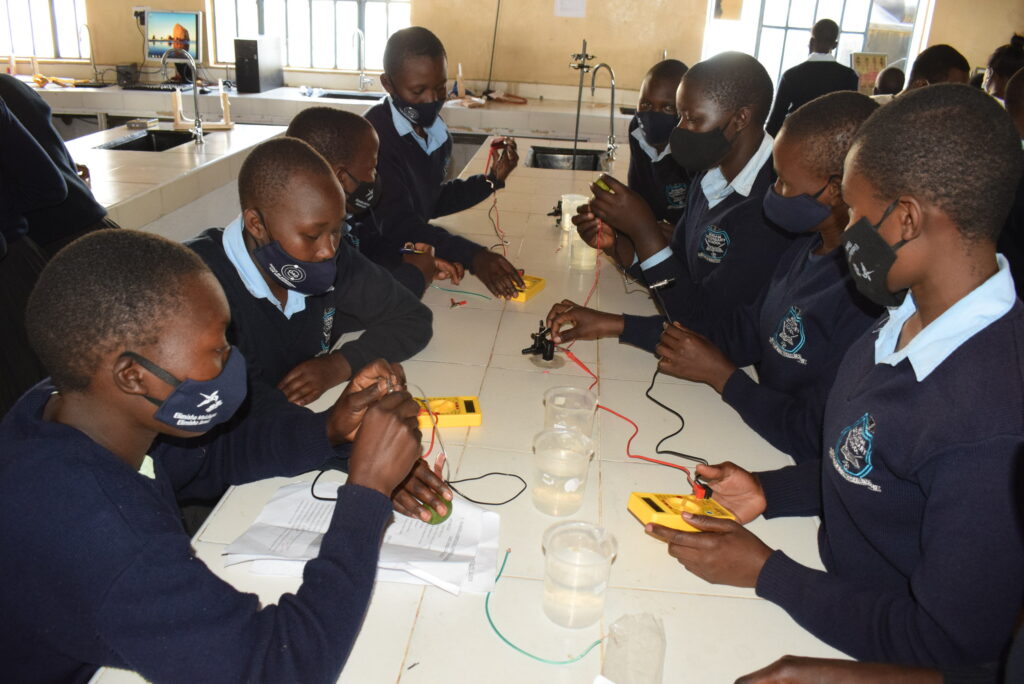Dropout rates are high between primary-to-secondary transition among schoolgirls in rural areas of Kenya and Uganda. Addressing gender disparity and equality in education is critically important for the socio-economic growth within these regions. EMEJA aims to address some of these issues in rural Kenya & Uganda via Astronomy outreach programmes, mentorship, & targeted STEM workshops and scholarships opportunities, to be guided & supported by long-term student tracking & monitoring to ensure that schoolgirls in these regions complete secondary education.
The target students come from poorer socio-economic backgrounds, with most of their parents either small scale/poorer farmers or unemployed. All target schools are located in rural and remote areas without (mostly) roads, electricity connections and overall poor infrastructure. These schools are also underfunded and underdeveloped.
Activities:
Meeting with Schools’ Headteachers and Principals (November 2022- January 2023): 19 schools in Kitale, 1 school in Murang’a, 1 school in Kibra, Nairobi and 3 schools in Isidingiro, Uganda).
Tracking & long term Monitoring
Through phone calls, EMEJA mentors tracked 884 EMEJA mentees from 2019 (now in Year IV, last year of secondary school), 2020 (now in Year III) and 2022 (now in Year I). Each Mentor phoned and spoke to their assigned girls (Mentees) and or with the girl’s parents. A few cases warranted a home visit by some of our mentors. We reached ~80% of the girls, the remaining ~20% were unreachable (eg. Incorrect phone numbers, phones switched off/unreachable, etc). ~20% of the total number of girls reached were in and out of school due to a number reasons.
Astro-STEM workshop preparation:
Syllabus development in consultation with local STEM (Physics, Mathematics, Computers and Geography) teachers from 5 local day secondary schools and the Astro-STEM tutors (Astronomy & Astrophysics & Nuclear Science students from the University of Nairobi and Technical University of Kenya). The aim was to identify topics to be covered during the Astro-STEM Workshops and Mentorship. Topics identified and selected based on the Kenya curriculum for secondary education and the hands-on practical developed primarily based on the laboratories need for each participating school. It was followed by training of Astro-STEM Tutors and Teachers.
Astro-STEM Workshop + Mentorship
2-3rd June 2023: Face-to-face events and hands-on practical in 3 secondary schools. 185 secondary schoolgirls (including a few boys) participated in 3 secondary schools: 85 students in St. Peters Girls, 60 students in UPEC Girls Osorongai and 40 students in Igikiro Mixed Day Secondary school. Other than hands-on experiments, the team introduced students to computers and discussed career opportunities in Astronomy & related STEM fields, provided students with tips for excelling in STEM subjects.
Outreach and Mentorship Scheme
1st – 14th July 2023: Carried first Astronomy outreach and mentorship across 3 schools in Uganda. EMEJA visited three government-aided primary schools, Kitooma Primary School, Birere Mixed Primary School and Rutsya Primary School (which also has an annex section for children with impairments) in Isindingiro District, South Western part of the country. A total of ~200 pupils were reached, with 79 girls in P6 and P7 (last two years of primary education) added into the EMEJA student tracking and long-term monitoring programme.
Tuition Fees Scholarship
Jan 2023 – ongoing: EMEJA is currently sponsoring 4 needy students (3 girls and 1 boy) for secondary education (1 in Year III, 2 in Year II and 1 in Year I).
Results:
i) Astro-STEM quizzes : Pre and Post tests designed in order to gauge the students’ knowledge before and after on the topics covered during the Astro-STEM. Comparing the before and after responses clearly show that the Astro-STEM had a positive effect and the intended outcome.
ii) Questionnaires were provided to both students, teachers and tutors. For example, 100% of the students at St. Peters Girls would happily attend another Astro-STEM event and 99% of them would recommend it to other students.
iii) The project aims to track and record the number of Year II girls selecting Physics in Year III (commencing in January 2024).
iv) Comparing and evaluating grades scored in Physics, Geography and Mathematics: teachers reported massive improvement in grades after Astro-STEM.
v) Community + parents verbal feedback is very positive.

